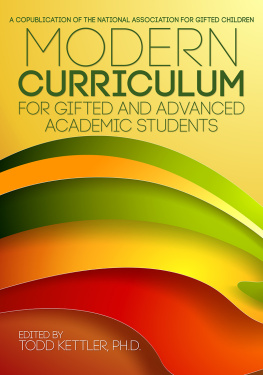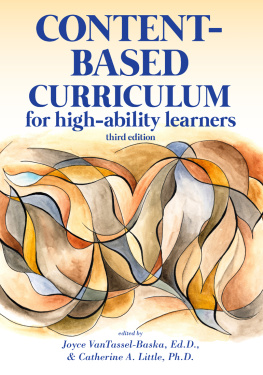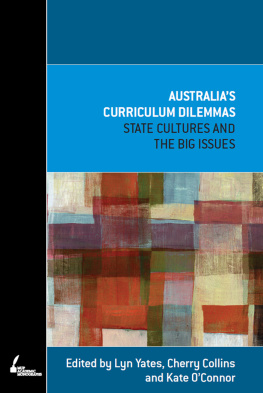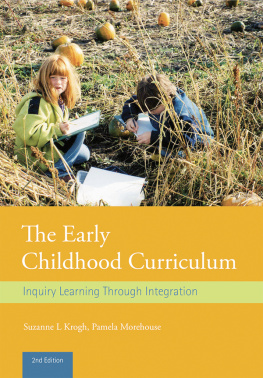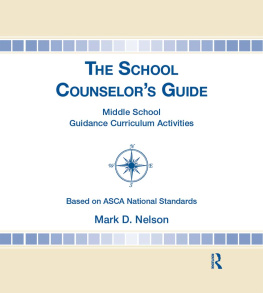THE NATIONAL CURRICULUM AND ITS EFFECTS
The National Curriculum and its Effects
Edited by
Cedric Cullingford and Paul Oliver
University of Huddersfield, UK
First published 2001 by Ashgate Publishing
Reissued 2018 by Routledge
2 Park Square, Milton Park, Abingdon, Oxon OX14 4RN
711 Third Avenue, New York, NY 10017, USA
Routledge is an imprint of the Taylor & Francis Group, an informa business
Copyright Cedric Cullingford, Paul Oliver and the contributors 2001
All rights reserved. No part of this book may be reprinted or reproduced or utilised in any form or by any electronic, mechanical, or other means, now known or hereafter invented, including photocopying and recording, or in any information storage or retrieval system, without permission in writing from the publishers.
Notice:
Product or corporate names may be trademarks or registered trademarks, and are used only for identification and explanation without intent to infringe.
Publisher's Note
The publisher has gone to great lengths to ensure the quality of this reprint but points out that some imperfections in the original copies may be apparent.
Disclaimer
The publisher has made every effort to trace copyright holders and welcomes correspondence from those they have been unable to contact.
A Library of Congress record exists under LC control number: 2001086237
ISBN 13: 978-1-138-72441-9 (hbk)
ISBN 13: 978-1-315-19247-5 (ebk)
Contents
Cedric Cullingford
Paul Oliver
John Elliott
Cedric Cullingford
Leroy McDonald
Bob Butroyd
Robert Berkeley
E. Rustique-Forrester
Fay Smith and Frank Hardman
Bob Butroyd
Matthew Pearson
Paul Oliver
Guide
Cedric Cullingford is Professor of Education in the School of Education and Professional Development at the University of Huddersfield.
Dr Paul Oliver is Principal lecturer in the School of Education and Professional Development at the University of Huddersfield.
John Elliott is Professor of Education within the Centre for Applied Research in Education (CARE) at the University of East Anglia, Norwich.
Leroy McDonald is a doctoral research student in the School of Education and Professional Development at the University of Huddersfield.
Bob Butroyd is Senior lecturer in the School of Education and Professional Development at the University of Huddersfield.
Robert Berkeley is a researcher in the Department of Educational Studies at the University of Oxford,
E. Rustique-Forrester is a researcher at the Centre for Educational Management, at the University of Surrey, Roehampton.
Dr Fay Smith is lecturer in the Department of Education at the University of Newcastle-upon-Tyne.
Dr Frank Hardman is Senior lecturer in the Department of Education at the University of Newcastle-upon-Tyne.
Dr Matthew Pearson is Senior lecturer in the Department of Education and Professional Development at the University of Huddersfield.
It has been over ten years since the Education Reform Act. As its title implies, this was introduced as making a radical change to the education system. The battery of tests, the provision for opting out, and Local Financial Management, together with the concomitant League Tables and changes to Inspection, all gave evidence of principles that were at one moment founded on the concept of market forces, and at another on clear centralised control. The most central example of the latter was the National Curriculum which, for all the subsequent tinkering, has remained intact.
During the last ten years there have been many people who have doubted the wisdom of imposing a 'broad and balanced' curriculum, supported by tests, on the whole population. The doubts have centred on whether this 'de-professionalising' of teachers enhances or devalues standards, and on whether pupils are making better or worse progress. This book is based on seeking out the evidence that would suggest whether the experiment has been successful or not. It has explored empirical data, rather than opinion. It is, of course, difficult in such a complex human endeavour such as education to single out a particular variable, like the curriculum. Correlation, like the rise of exclusions and truancy, should not be mistaken for causes. Nevertheless there is a consistency in the findings that should give more than a pause for thought.
There is not only consistency but positive intellectual overlaps between the chapters. Any doubts they display about pupil standards, motivations and welfare are the result of a close and fair scrutiny of the evidence. The first three chapters give a theoretical as well as factual framework to the rest of the book, summarising evidence from the earliest debates to the more recent changes. The next three chapters from four to six explore pupils' experience and perceptions of the National Curriculum: what is it really like for them? Has the 'entitlement' of the curriculum enhanced their learning, or burdened them with fact?
Chapters seven and eight explore the relationship between the National Curriculum and the experience of disaffected pupils. The rise in exclusions is well documented, but can this be attributed to the results of the Education Reform Act? Chapter nine takes this look at the actual effects of the National Curriculum somewhat further through an analysis of literacy hours in particular. Chapters ten and eleven explore not only teachers' perceptions of the national curriculum but their experience of it.
Between the different chapters and the evidence that is presented there is a great deal of consistency. The respect for valid evidence means that the judgements and conclusions are not lightly made. If the National Curriculum delivered exactly what Kenneth Baker promised on its introduction then that should be a matter to be celebrated. If it has, in fact, the opposite effect to that intended, then that should be made known.
The editors are very grateful for the help and expertise of Susan Smith of the Academic Typing Services unit at the University of Huddersfield.
CEDRIC CULLINGFORD
Everyone has their own curriculum. As in a curriculum vitae it is like a loose fitting set of cultural clothes, an idiosyncratic texture of knowledge that is unique. There are as many hidden or overt curricula as there are people. The word curriculum is therefore a Humpty-Dumpty word: "When I use a word it means exactly what I want it to mean, neither more nor less". "The question is" says Alice, "whether one can use a word like that?" "The question is" replies Humpty-Dumpty, "who is to be master, that's all".
The great irony about such a lubricious term is that it has become redolent with its association of a firmly imposed, inflexible will. The National Curriculum as in the curricula imposed on communist countries rests on the supposition that there is a clear collective whole appropriate to everyone. The very concept of 'entitlement' is that all should feast at the same table. The 'broadness' and the 'balance' is all inclusive. All the tests must be 'standard'. That we meet with the collective experience of submitting to one agreed centralised plan, where, in the words of one child at the official opening of a new school building, 'all of us sang the National Curriculum'.


